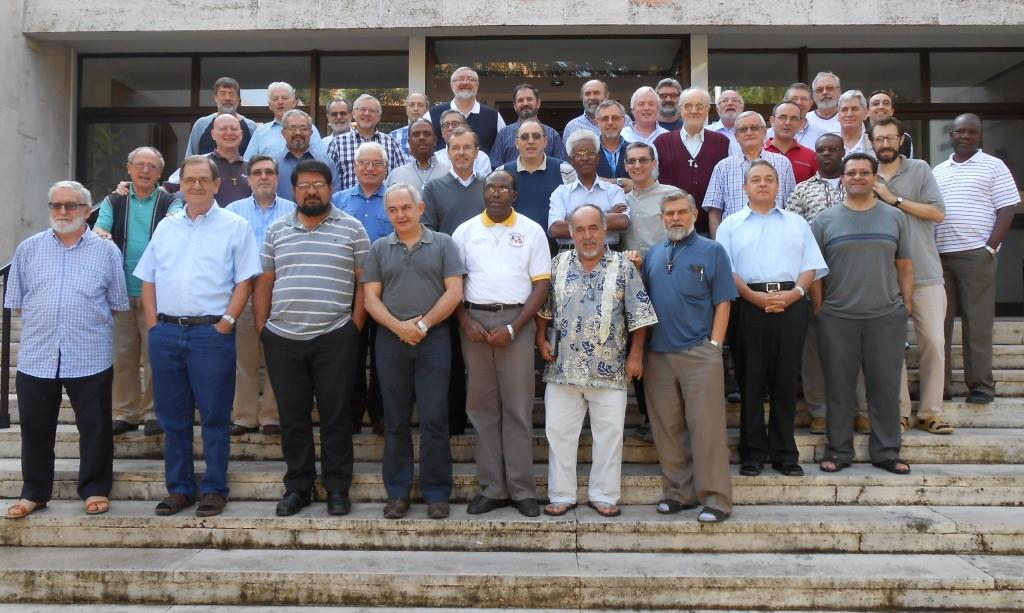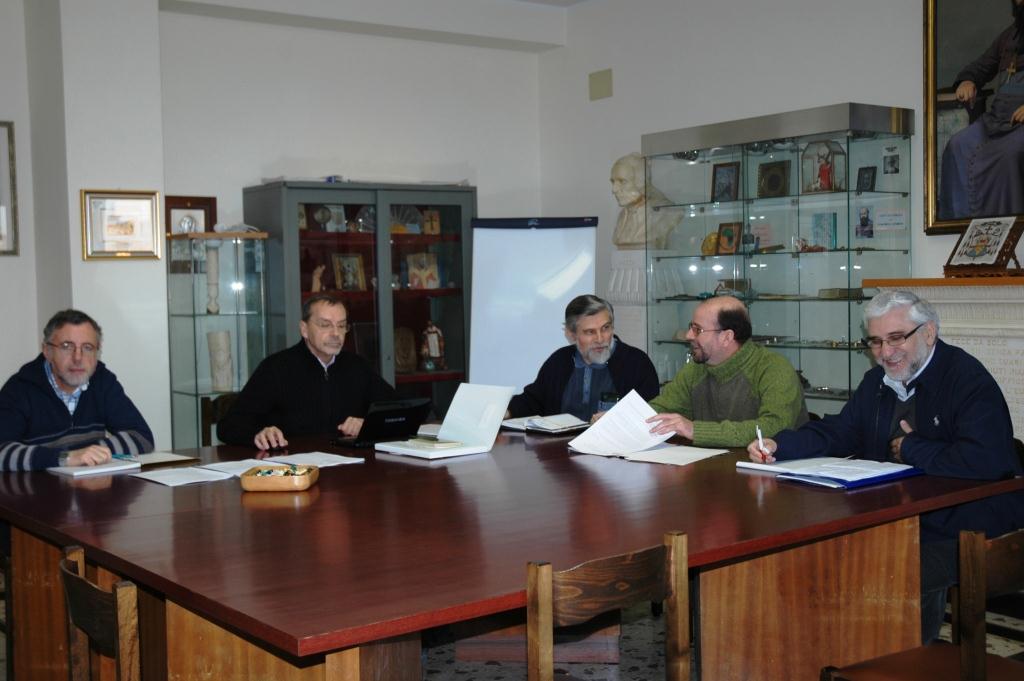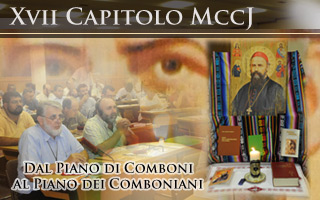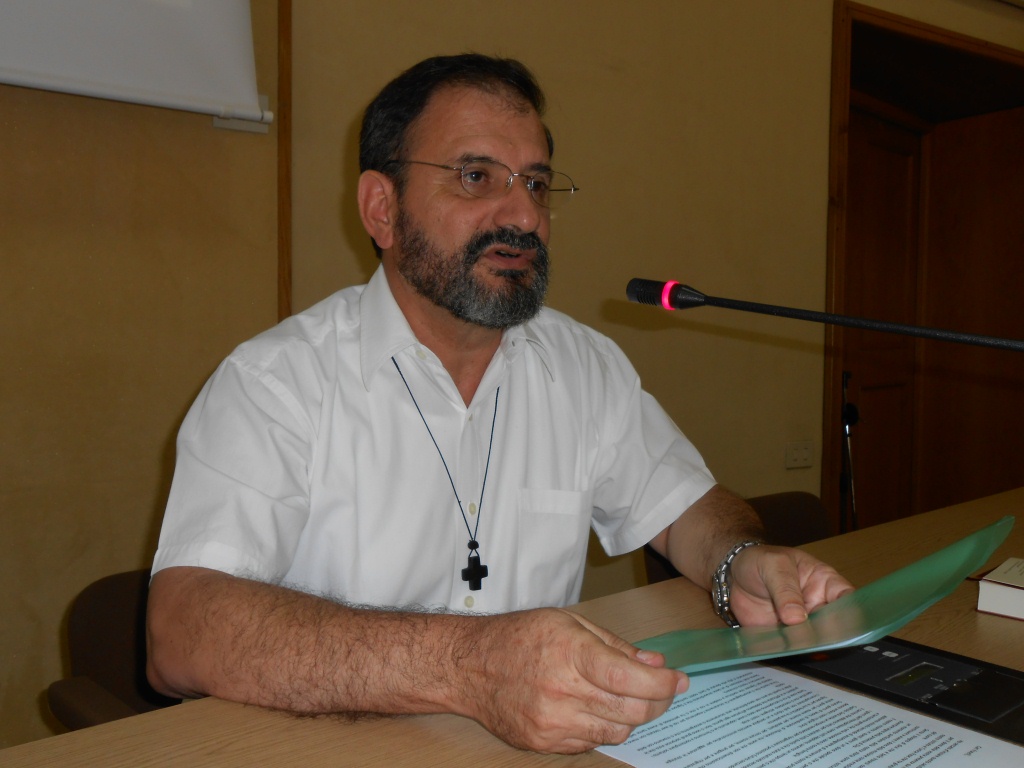Daniel Comboni
Comboni Missionaries
Institutional area
Other links
Newsletter
Rome, Friday, September 21 2012
“… We manifest our deep emotion and indignation for the premature death of so many of our migrant brothers and sisters in the waters of the Mediterranean,” write the Comboni Missionaries gathered in Rome for the Intercapitular Assembly that ended yesterday. We publish here below the complete text of the missionaries entitled “I was a stranger and you welcomed me”.
“I was a stranger and you welcomed me…”
(Mt 25,35)
“On the road that leads from Christ to man the Church cannot be stopped by anyone”
(Redemptor Hominis, #13)
We, the General Administration, Provincial Superiors and Delegates of the Comboni Missionaries, gathered in Rome for the Intercapitular Assembly, manifest our deep emotion and indignation for the premature death of so many of our migrant brothers and sisters in the waters of the Mediterranean. On September 6, 2012, another slaughter of migrants has taken place, while from the coasts of North Africa, they attempted to reach our coast: following the shipwreck of the boat transporting about 130 Tunisians near the island of Lampione, we count 77 missing and 3 dead. As missionaries working in four Continents, including Africa, a land so beloved by our founder San Daniel Comboni, we believe that faced by the complexity of this phenomenon, there is a need for urgent and concrete answers, so that these tragedies will not be forgotten or ignored.
We know, because we are witnesses that the fluxes of migration take place in order to run away from dramatic situations in the countries of origin. Poverty, famine, wars and diseases are some of the causes that move the inhabitants of these countries to start on a long journey of hope. We also know that, behind these dramatic situations, there is the responsibility of governments, especially of the West. A system that ensures riches, economic and financial power to a few, can stand only by impoverishing the majority of the world’s population.
In this situation so difficult and so filled with pain, the Lord Jesus invites us to believe that death is not the last word of history; that life can be reborn through the effort and the commitment of many men and women of good will. The dream of a better life which is present in the heart of migrants as they prepare to leave, is the dream of all of us. It is the dream of Jesus when he says “I have come that they may have life and have it in abundance.” (John 10,10). Only together we will be able to dream, to think and to realize alternatives with new form of common living and organization.
For this, in line with the message of Jesus, we cannot accept:
+ The law of forced refusals because it is contrary to the values of fraternity, dialog and solidarity.
+ A vision of immigration tied only to problems of national security, because it is a global phenomenon that will represent one of the greatest challenges in future years.
+ Any type of legislation which is restrictive and racist, because instead of diminishing the problem of migration, it favors its clandestine nature.
+ The taking advantage of the labor force of the migrants, because they are poorly paid and made to live in inhuman conditions.
+ The wall of silence and indifference, because “there is no silence that can be justified and, above all, that can quiet our consciences.”
+ Any form of racism or xenophobia, direct or indirect, towards migrants because in the face of each migrant brother and sister is the manifestation of Jesus in our midst.
Reality pushes us to act. “The massive immigration from Eastern Europe, Africa and Asia urgently demands new forms of solidarity”(2) Our being sensitive and attentive to those who are in real need, must show itself in concrete actions of welcome and solidarity, respecting the rights of the person.
For this we expect:
+An urgent need to prepare more effective and operative systems of search and rescue.
+ Politics in favor of legal immigrants, without denying or violating in any way the rights of the migrants who are in irregular situations. These rights must prevail in all circumstances.
+ To strengthen or create ways of meeting with persons who come from realities, cultures and religions different from ours. To favor dialog as an instrument of meeting.
+ A new model of citizenship based on respect, sharing and recognition of the dignity of the life of migrants. The time has come to “build a kind of ‘open’ citizenship that could be center around the common denominator of the Mediterranean” (3)
The prophetic words of Giorgio La Pira, in a message during the Euro-Arab meeting (April 22, 1977) sound still today clearly as an indication for a concrete commitment: “To build the tent of peace is also the destiny of the Mediterranean. These people, even though filled of lacerations and contrasts, have, in a certain sense a common historical background, a common spiritual, cultural and in a way even political destiny. Their ‘unity’ is essential and is almost a premise for the unity of the entire family of peoples.” (4)
And finally we are convinced that the true common life of peoples “is built not on the basis of auto-referential and opposite modules, but with open and dynamic steps, and becomes able to meet other identities, to be positively contagious according to intercultural models, always without giving in to a relativistic logic deprived of firm points.” (5)
This time of crisis that Europe is going through can be a good time to ask what type of society and of world we want. We are called to be clear in order to be able to see the possibilities that emerging in the phenomenon of migration. The crisis can become an alarm bell that calls us to change our styles of life and build “another society”, a welcoming one.
Rome, September 20 2012
The participants to the Intercapitular Assembly
(1) Mons. Domenico Mogavero, Vescovo di Mazara del Vallo.
(2) CONFERENZA EPISCOPALE ITALIANA, Per un Paese solidale. Chiesa italiana e Mezzogiorno, 21 febbraio 2010, n. 4.
(3) Ibidem, n. 7.
(4) M.P. GIOVANNONI (a cura di), Il grande lago di Tiberiade. Lettere di Giorgio La Pira per la pace nel Mediterraneo (1954-1977), Edizioni Polistampa, Firenze 2006, p. 180.
(5) CONFERENZA EPISCOPALE ITALIANA, Atti della 59a Assemblea Generale. Roma, 25-29 maggio 2009, Roma 2009, p. 37.




